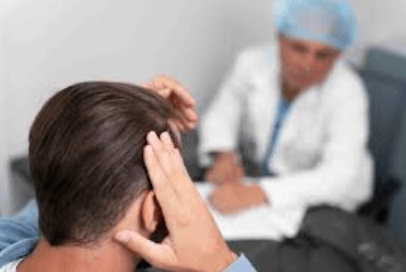Consulting a Specialist: Finding the Best Treatment Plan for Your Hair Fall

Hair loss, while it may be a common occurrence nowadays, can take a serious toll on one’s mental health. When it comes to hair loss, it isn’t just the physical change that you have to cope with, but in many cases, the mental toll as people could become very conscious and this could affect their confidence levels. It is imperative that you find the best treatment for hair fall. Not all hair fall has the same treatment for it, so it is best to consult a hair specialist or a hair doctor who can assess your condition and accordingly suggest a suitable treatment plan for you.
Understanding the Importance of Specialist Consultation
A specialist such as a dermatologist or a trichologist are experts who can rightly diagnose and assess your hair fall concerns and set you up with a suitable treatment plan that is best suited for your hair fall. Sometimes hair fall can be temporary such as those that are stress-induced or even deeper ones which have nutritional deficiencies as the root cause. A hair specialist will be able to accurately determine what is the cause and then tailor a treatment plan for your specific condition.
Steps in Consulting a Specialist
Initial Assessment:
○ Medical History: The specialist will review your medical history, including any underlying health conditions, medications, and family history of hair loss.
○ Lifestyle Factors: They will consider lifestyle factors such as diet, stress levels, and hair care practices.
○ Physical Examination: A thorough scalp examination will help identify the pattern and extent of hair loss.
Diagnostic Tests:
○ Blood Tests: To check for deficiencies or hormonal imbalances.
○ Scalp Biopsy: In some cases, a small scalp sample may be taken to examine the hair follicles under a microscope.
○ Pull Test: The specialist may gently pull a small section of hair to determine the stage of the shedding process.
Tailoring the Best Treatment Plan for Hair Fall
Based on the diagnosis, the specialist will recommend a personalized treatment plan. Here are some common treatments that might be included:
Topical Treatments:
○ Minoxidil: An over-the-counter medication applied directly to the scalp to stimulate hair growth and slow hair loss.
○ Prescription Medications: Specialists may prescribe stronger topical solutions or corticosteroids for inflammation.
Oral Medications:
○ Finasteride: A prescription drug for male pattern baldness that reduces hair loss by inhibiting the production of DHT, a hormone linked to hair loss.
○ Spironolactone: Often prescribed for women, this medication helps balance hormones and reduce hair loss.
Laser Therapy:
○ Low-Level Laser Therapy (LLLT): Uses light to stimulate hair follicles and promote hair growth. It is a non-invasive treatment with minimal side effects.
Platelet-Rich Plasma (PRP) Therapy:
○ PRP Therapy: Involves injecting concentrated platelets from your blood into the scalp to stimulate hair growth and improve hair density.
Nutritional Support:
○ Supplements: A specialist might recommend vitamins and minerals essential for hair health, such as biotin, zinc, iron, and vitamin D.
○ Dietary Changes: Adopting a balanced diet rich in nutrients that support hair growth.
Hair Transplant Surgery:
○ Follicular Unit Transplantation (FUT): A surgical procedure where strips of scalp with healthy hair follicles are transplanted to thinning areas.
○ Follicular Unit Extraction (FUE): Individual hair follicles are extracted and transplanted to balding areas.
Homeopathic Treatments:
○ Customized Homeopathic Remedies: Homeopathic specialists may offer personalized treatments to address the root cause of hair fall without side effects.
Importance of Follow-Ups
Regular follow-up appointments with your specialist are essential to monitor the progress of the treatment and make necessary adjustments. Hair growth can be a slow process, and continuous evaluation ensures the treatment plan remains effective.
Read also: The Ultimate Guide to Turkish Towels: Benefits, Uses, and Care
Choosing the Right Specialist
A lot rides on choosing the right hair specialist when it comes to getting the best treatment for hair fall. Choose a dermatologist or a trichologist who has ample experience in treating various kinds of hair loss in different stages. This means that they have experience in treating a myriad ranges and types of hair loss and will be the best fit.
Consulting a hair specialist is the first step in the right direction when it comes to addressing your hair fall issues. A thorough assessment can actively determine the underlying cause for your hair loss and this helps in putting you on the correct or apt treatment plan. Regular visits to your hair specialist is considered best to get the best treatment for hair fall. Sometimes lifestyle changes or nutritional changes in your diet can be sufficient enough to promote hair growth. Sometimes, you may be in need of a more intensive approach to stem the hair loss and strengthen the scalp for best results. The reasons could be many and the effective measures can also vary. That is why consulting a hair specialist is of paramount importance to get the best treatment for your hair fall.




